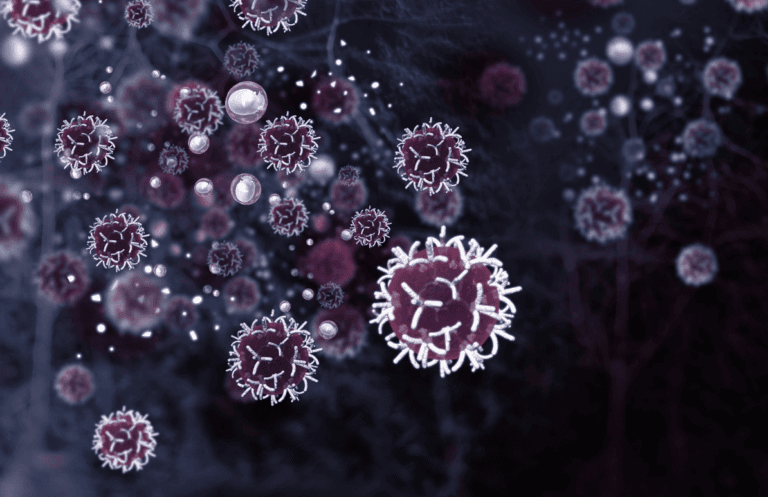Cannabis sativa, a plant known by many names such as marijuana, weed, and hemp, has been used for centuries, both recreationally and medicinally. It contains various substances called cannabinoids, which have shown potential for medicinal effects on the body. One such cannabinoid is cannabidiol (CBD) oil, which is derived from the flowers of the cannabis plant. CBD (cannabidiol) is fast emerging as a promising ingredient in the pharmaceutical industry, where it may have an important therapeutic medical use, across many disease areas, including cancer. CBD and other medicinal cannabis products come in many forms, including vape, tincture, sprays, edibles and oils.
Cancer is a complex and devastating disease that affects millions of people worldwide. Traditional cancer treatments often come with various side effects that can impact a patient’s quality of life. As a result, many individuals are turning to complementary and alternative therapies to manage their symptoms and improve their overall well-being. Many patients’ hesitation in using prescription opioids for pain management has led to significant attention to CBD oil. This article aims to provide a comprehensive guide to the use of cannabis and CBD oil in cancer therapy, discussing their effects, legality, different types of oils, and ongoing research.
Understanding cannabis and cannabinoids
The cannabis plant produces a resin that contains cannabinoids, including delta-9-tetrahydrocannabinol (THC) and CBD. THC is a psychoactive substance that can create a “high” feeling and affect brain function, while CBD is a non-psychoactive cannabinoid that may have pain-relieving and anti-inflammatory properties. Cannabinoids, activate specific receptors throughout the body to produce pharmacological effects, particularly in the central nervous system and the immune system.
Different strains of cannabis have varying levels of THC and other chemicals, resulting in different effects on the body. It is important to note that CBD oil does not contain THC and therefore does not produce the psychoactive effects associated with cannabis.
Understanding cancer and its treatment
Before diving into the potential benefits of CBD oil in alleviating the side effects of cancer treatment, it’s essential to have a basic understanding of the disease and its conventional treatment options. Cancer is characterized by the uncontrolled growth and spread of abnormal cells in the body. It can affect various organs and tissues and has different stages and types, including breast cancer, lung cancer, prostate cancer, and more.
The primary treatment modalities for cancer include surgery, radiation therapy, chemotherapy, immunotherapy, and targeted therapy. These treatments aim to remove the cancerous cells, destroy them, or stop their growth. While these treatments can be effective, they often come with side effects such as nausea, vomiting, hair loss, fatigue, and compromised immune function.
Complementary and alternative therapies in cancer treatment
Complementary and alternative therapies are approaches that are used alongside conventional cancer treatments to support overall well-being and manage treatment-related side effects. These therapies encompass a wide range of practices, including acupuncture, massage, meditation, yoga, and herbal remedies. CBD oil has also emerged as a popular complementary therapy, thanks to its potential anti-inflammatory, analgesic, and anti-anxiety properties.
The science behind CBD Oil and cancer
CBD oil interacts with the body’s endocannabinoid system, targeting cannabinoid receptors (CB1 and CB2) found mainly in the brain and in various organs and tissues. The endocannabinoid system plays a crucial role in regulating multiple physiological processes, including pain sensation, immune function, and inflammation. Research suggests that CBD may exert its effects by interacting with these receptors, potentially offering therapeutic benefits in cancer treatment.
Potential benefits of CBD Oil in cancer treatment
While research on the use of cannabis and CBD oil in cancer treatment is still in its early stages, there have been promising findings. Laboratory studies have shown that the use of cannabinoids can cause cell death, inhibit cell growth, reduce inflammation, and impede the development of blood vessels necessary for tumor growth. They have also demonstrated potential in relieving pain and nausea in some individuals.
Medical cannabis, which includes cannabis-based products used to relieve symptoms, is available on prescription for specific medical conditions. These conditions include rare forms of epilepsy, multiple sclerosis-related spasticity, and chemotherapy-induced nausea and vomiting.
Preliminary findings suggest several potential benefits:
- Pain management: Cancer pain/neuropathy is a common symptom that can be challenging to control. CBD oil has been shown to have analgesic properties and may help alleviate chronic pain in cancer patients
- Nausea and vomiting: Chemotherapy-induced nausea and vomiting are significant side effects that can impact a patient’s quality of life. CBD oil may have antiemetic properties, making it a potential option for managing these symptoms
- Anxiety and depression: A cancer diagnosis and treatment journey can often lead to increased levels of anxiety and depression. CBD oil has shown promise in reducing anxiety and improving mood in various clinical studies
- Inflammation and immune function: Chronic inflammation and compromised immune function are common in cancer patients. CBD oil’s anti-inflammatory properties may help modulate the immune response and reduce inflammation
- Sleep disturbances: Cancer and its treatment can disrupt sleep patterns, leading to fatigue and decreased overall well-being. CBD oil has been reported to improve sleep quality and promote relaxation
It’s important to note that while these potential benefits are promising, more research is needed to establish the efficacy and safety of CBD oil in cancer treatment.
There are not currently any FDA-approved (Food and Drug Administration) CBD medications for treating cancer or side effects of cancer treatments. There are two synthetic cannabinoid medications, nabilone (Cesamet) and dronabinol (Marinol or Syndros), that are FDA-approved to treat nausea and vomiting related to chemotherapy. These medications are made in a laboratory.
Current research on CBD Oil and cancer
While there is anecdotal evidence and preclinical studies supporting the potential benefits of CBD oil in cancer treatment, more robust clinical trials are needed to establish its efficacy and safety. The limited human studies conducted so far have shown promising results, but larger-scale trials are necessary to draw definitive conclusions. Researchers are exploring the use of CBD oil in various types of cancer, including breast cancer, lung cancer, prostate cancer, and glioblastoma (a type of brain cancer). These studies aim to evaluate the effects of CBD oil on tumor growth, metastasis, and overall survival rates.
Breast cancer
A study published in the Journal of Pharmacology and Experimental Therapeutics investigated the effects of CBD on breast cancer cells in vitro. The researchers found that CBD inhibited the growth and spread of breast cancer cells and induced programmed cell death, suggesting its potential as an anti-cancer agent. Another study published in Molecular Cancer Therapeutics demonstrated that CBD enhanced the effectiveness of a commonly used breast cancer drug, paclitaxel, in inhibiting tumor growth.
Lung cancer
Preliminary studies have also shown promising results for the use of CBD oil in lung cancer treatment. A study published in Oncology Reports found that CBD induced programmed cell death and inhibited the invasion and migration of lung cancer cells. Additionally, research conducted at the University of Rostock in Germany showed that CBD increased the sensitivity of lung cancer cells to radiation therapy, potentially enhancing its efficacy.
Prostate cancer
CBD oil has shown potential in the treatment of prostate cancer as well. A study published in The Prostate investigated the effects of CBD on prostate cancer cells in vitro and in vivo. The researchers found that CBD inhibited the growth of prostate cancer cells and reduced tumor size in mice. Furthermore, CBD was found to induce programmed cell death and inhibit the spread of cancer cells.
Glioblastoma
Glioblastoma also known as glioma is an aggressive form of brain cancer with limited treatment options. Research suggests that CBD oil may have anti-tumor effects in glioblastoma. A study published in Molecular Cancer Therapeutics demonstrated that CBD inhibited the growth of glioblastoma cells and induced programmed cell death. Another study published in Molecular Cancer Research found that CBD enhanced the effects of temozolomide, a standard chemotherapy drug used in the treatment of glioblastoma.
Safety considerations and potential side effects
CBD oil is generally considered safe for use, with minimal side effects reported in clinical studies. However, some individuals may experience mild side effects such as drowsiness, dry mouth, and changes in appetite or weight. It’s crucial to consult with a healthcare professional before incorporating CBD oil into a cancer treatment plan, especially if you are taking other medications or have underlying health conditions.
Additionally, it’s important to note that the quality and purity of CBD oil can vary significantly. When choosing a CBD product, look for third-party lab testing and ensure it is sourced from reputable manufacturers.
Legal considerations
The legal status of CBD oil varies by country and state. In some regions, CBD oil derived from hemp (a variety of cannabis with low THC content) is legal, while products derived from marijuana may be subject to more stringent regulations. It’s essential to familiarize yourself with the laws and regulations in your specific jurisdiction before purchasing or using CBD oil.
How to incorporate CBD Oil into cancer treatment
If you are considering incorporating CBD oil into your cancer treatment plan, it’s crucial to work closely with your healthcare team. They can provide guidance on dosage, and potential interactions with other medications, and help monitor your progress. It’s important to remember that CBD oil should not be used as a substitute for conventional cancer treatments but rather as a complementary therapy.
Conclusion
CBD oil has shown promise as a complementary therapy in cancer treatment, with potential benefits in pain management, nausea and vomiting, anxiety and depression, inflammation, and sleep disturbances. While the scientific evidence is still limited, early studies suggest that CBD oil may offer therapeutic benefits for cancer patients. However, more research is needed to establish its efficacy, safety, and optimal usage.
If you are considering incorporating CBD oil into your cancer care plan, it’s essential to consult with your healthcare team and ensure that you are using a high-quality product from a reputable source. By working together with your healthcare professionals, you can explore the potential benefits of CBD oil and make informed decisions about your treatment journey.
Sources
Medical Disclaimer
NowPatient has taken all reasonable steps to ensure that all material is factually accurate, complete, and current. However, the knowledge and experience of a qualified healthcare professional should always be sought after instead of using the information on this page. Before taking any drug, you should always speak to your doctor or another qualified healthcare provider.
The information provided here about medications is subject to change and is not meant to include all uses, precautions, warnings, directions, drug interactions, allergic reactions, or negative effects. The absence of warnings or other information for a particular medication does not imply that the medication or medication combination is appropriate for all patients or for all possible purposes.









